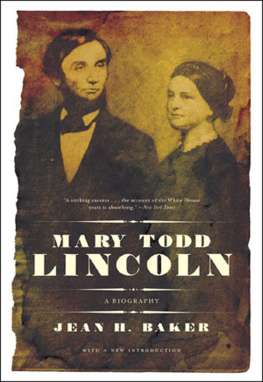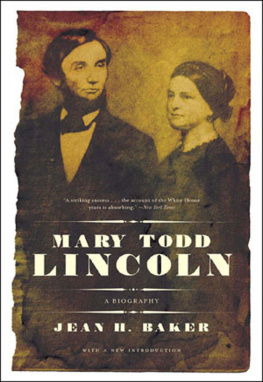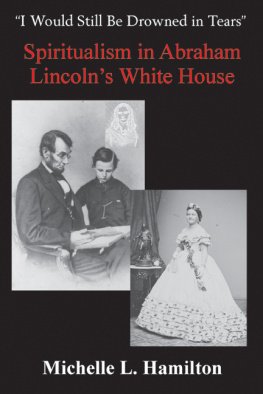Jason Emerson - Mary Lincolns Insanity Case: A Documentary History
Here you can read online Jason Emerson - Mary Lincolns Insanity Case: A Documentary History full text of the book (entire story) in english for free. Download pdf and epub, get meaning, cover and reviews about this ebook. City: Urbana, year: 2015, publisher: University of Illinois Press, genre: History. Description of the work, (preface) as well as reviews are available. Best literature library LitArk.com created for fans of good reading and offers a wide selection of genres:
Romance novel
Science fiction
Adventure
Detective
Science
History
Home and family
Prose
Art
Politics
Computer
Non-fiction
Religion
Business
Children
Humor
Choose a favorite category and find really read worthwhile books. Enjoy immersion in the world of imagination, feel the emotions of the characters or learn something new for yourself, make an fascinating discovery.

- Book:Mary Lincolns Insanity Case: A Documentary History
- Author:
- Publisher:University of Illinois Press
- Genre:
- Year:2015
- City:Urbana
- Rating:4 / 5
- Favourites:Add to favourites
- Your mark:
Mary Lincolns Insanity Case: A Documentary History: summary, description and annotation
We offer to read an annotation, description, summary or preface (depends on what the author of the book "Mary Lincolns Insanity Case: A Documentary History" wrote himself). If you haven't found the necessary information about the book — write in the comments, we will try to find it.
In 1875 Mary Lincoln, the widow of a revered president, was committed to an insane asylum by her son, Robert. The trial that preceded her internment was a subject of keen national interest. The focus of public attention since Abraham Lincolns election in 1860, Mary Lincoln had attracted plentiful criticism and visible scorn from much of the public, who perceived her as spoiled, a spendthrift, and even too much of a Southern sympathizer. Widespread scrutiny only increased following her husbands assassination in 1865 and her son Tads death six years later, after which her overwhelming grief led to the increasingly erratic behavior that led to her being committed to a sanitarium. A second trial a year later resulted in her release, but the stigma of insanity stuck. In the years since, questions emerged with new force, as the populace and historians debated whether she had been truly insane and subsequently cured, or if she was the victim of family maneuvering.
In this volume, noted Lincoln scholar Jason Emerson provides a documentary history of Mary Lincolns mental illness and insanity case, evenhandedly presenting every possible primary source on the subject to enable a clearer view of the facts. Beginning with documents from the immediate aftermath of her husbands assassination and ending with reminiscences by friends and family in the mid-twentieth century, Mary Lincolns Insanity Case: A Documentary History compiles more than one hundred letters, dozens of newspaper articles, editorials, and legal documents, and the daily patient progress reports from Bellevue Place Sanitarium during Mary Lincolns incarceration. Including many materials that have never been previously published, Emerson also collects multiple reminiscences, interviews, and diaries of people who knew Mary Lincoln or were involved in the case, including the first-hand recollection of one of the jurors in the 1875 insanity trial.
Suggesting neither accusation nor exoneration of the embattled First Lady, Mary Lincolns Insanity Case: A Documentary History gives scholars and history enthusiasts incomparable access to the documents and information crucial to understanding this vexing chapter in American history.
Jason Emerson: author's other books
Who wrote Mary Lincolns Insanity Case: A Documentary History? Find out the surname, the name of the author of the book and a list of all author's works by series.






 This book is printed on acid-free paper.
This book is printed on acid-free paper.